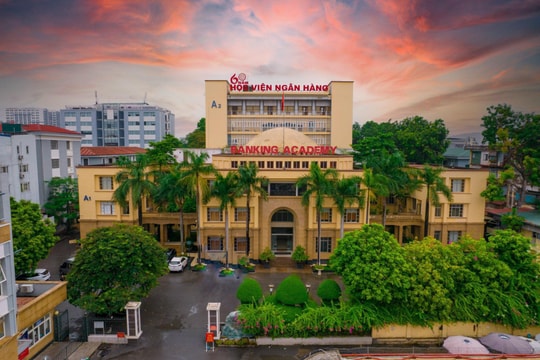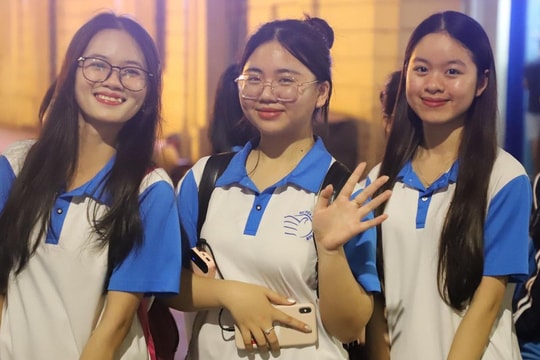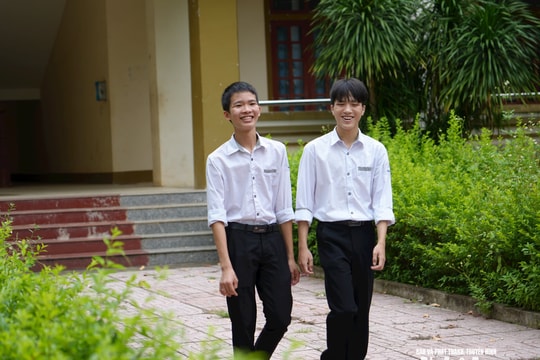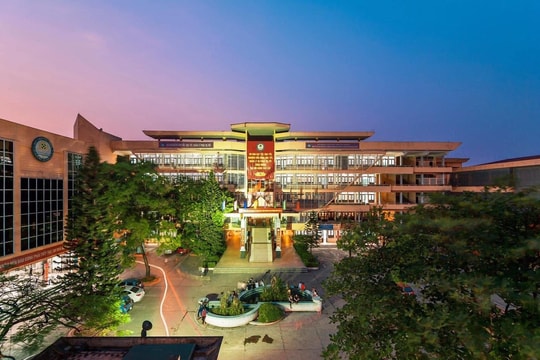Those who do not have to pay tuition fees
The Minister of Education and Training, the Minister of Finance and the Minister of Labor, War Invalids and Social Affairs issued a joint Circular guiding the implementation of a number of articles of Decree No. 86/2015/ND-CP regulating the mechanism for collecting and managing tuition fees for educational institutions in the national education system and policies on tuition exemption, reduction and support for learning costs from the 2015-2016 school year to the 2020-2021 school year.
Subjects not required to pay tuition fees
Subjects not required to pay tuition fees include: Primary school students in public schools; Full-time students majoring in pedagogy studying at public vocational and higher education institutions, according to the State's training quotas;
Students studying specialized majors that meet the requirements of socio-economic development, national defense, and security as prescribed by the Law on Higher Education. Specialized majors are issued by competent state agencies.
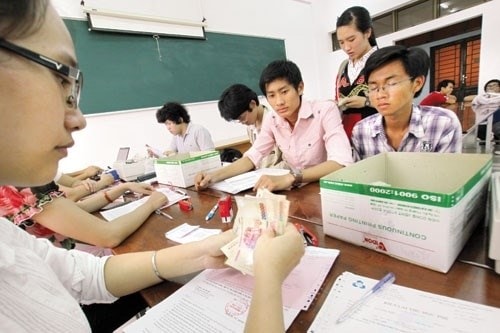 |
| Illustration photo. |
Tuition exemption subjects
Subjects exempted from tuition fees: People with meritorious services to the revolution and relatives of people with meritorious services to the revolution according to the Ordinance on Preferential Treatment of People with Meritorious Services to the Revolution, consolidated in Document No. 01/VBHN-VPQH dated July 30, 2012 of the Office of the National Assembly.
Specifically: People's Armed Forces Heroes; War invalids; People enjoying policies like war invalids; Labor heroes during the resistance war period (if any);
Children of revolutionary activists before January 1, 1945 (if any); children of revolutionary activists from January 1, 1945 to the August 1945 uprising (if any); children of People's Armed Forces Heroes; children of Labor Heroes during the resistance period; children of martyrs; children of war invalids; children of people enjoying the same policies as war invalids; children of sick soldiers; children of resistance activists infected with toxic chemicals.
Preschool children and disabled students and pupils from poor or near-poor households as prescribed by the Prime Minister;
Preschool children and students under 16 years old without a source of support as prescribed in Clause 1, Article 5 of Decree No. 136/2013/ND-CP dated October 21, 2013 of the Government regulating social assistance policies for social protection beneficiaries. Specifically:
- Abandoned and unadopted;
- Orphaned;
- Orphaned of one parent and the remaining parent is missing according to the provisions of law;
- Orphaned of one parent and the remaining parent is receiving care and upbringing at a social protection facility or social house;
- Orphaned of one parent and the remaining parent is serving a prison sentence in a prison or is serving an administrative violation decision at a reformatory school, compulsory education facility, or compulsory drug rehabilitation facility;
- Both parents are missing according to the law;
- Both father and mother are receiving care and upbringing at social protection facilities or social houses;
- Both father and mother are serving a prison sentence in prison or are serving an administrative violation handling decision at a reformatory school, compulsory education facility, or compulsory drug rehabilitation facility;
- Father or mother is missing according to the law and the remaining person is receiving care and upbringing at a social protection facility or social house;
- One parent is missing according to the provisions of law and the other is serving a prison sentence in a detention camp or is serving an administrative violation handling decision at a reformatory school, compulsory education facility, or compulsory drug rehabilitation facility;
- One parent is receiving care and nurturing benefits at a social protection facility or social house and the other parent is serving a prison sentence in a detention camp or is serving an administrative violation decision at a reformatory school, compulsory education facility, or compulsory drug rehabilitation facility.
Preschool children and primary school students whose parents are poor households according to regulations of the Prime Minister;
Preschool children and primary school students who are children of non-commissioned officers and soldiers serving for a term in the people's armed forces: according to the provisions of Clause 1, Article 4 of Joint Circular No. 20/2012/TTLT-BQP-BTC dated March 6, 2012 of the Ministry of National Defense and the Ministry of Finance guiding the implementation of Decree No. 88/2011/ND-CP dated September 29, 2011 of the Government on regimes and policies for families of non-commissioned officers and soldiers on active duty;
Students of the selection system (including students of selection for vocational boarding with a training period of 3 months or more); Students of ethnic boarding schools, university preparatory schools, and university preparatory faculties;
Students studying at vocational and higher education institutions who are ethnic minorities from poor and near-poor households according to regulations of the Prime Minister; Students majoring in Marxism-Leninism and Ho Chi Minh Thought;
Students, pupils and trainees studying one of the following majors: Tuberculosis, Leprosy, Psychiatry, Forensic Medicine, Forensic Psychiatry and Pathology at public health human resource training facilities, according to the State's training quotas;
Ethnic minority students are very few in areas with difficult or especially difficult socio-economic conditions. Specifically:
- Ethnic minorities with very few people include: La Hu, La Ha, Pa Then, Lu, Ngai, Chut, Lo Lo, Mang, Cong, Co Lao, Bo Y, Si La, Pu Peo, Ro Mam, BRau, O Du;
- Areas with difficult and especially difficult socio-economic conditions are determined according to the documents specified in Appendix I attached to this Joint Circular.
College and university students, graduate students, biological researchers majoring in the field of atomic energy;
Junior high school graduates who continue to study at intermediate level (including junior high school graduates who continue to study at intermediate vocational and professional levels);
Students at intermediate and college levels, for fields and professions that are difficult to recruit but are in demand by society according to the list prescribed by the Head of the central state management agency of vocational education;
Students of specialized majors and professions that meet the requirements of socio-economic development, national defense and security according to the provisions of the Law on Vocational Education. Specialized majors are issued by competent state agencies.
According to the Ministry of Education and Training

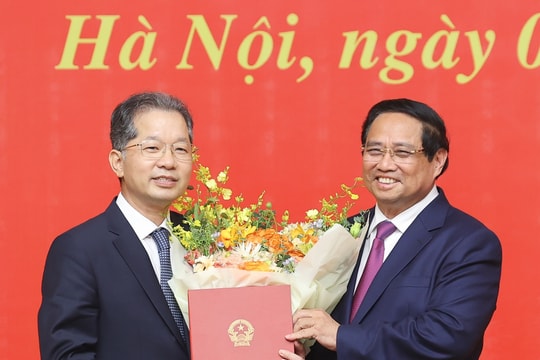
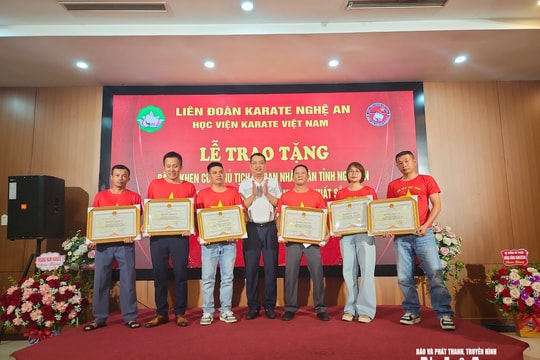
.jpg)
